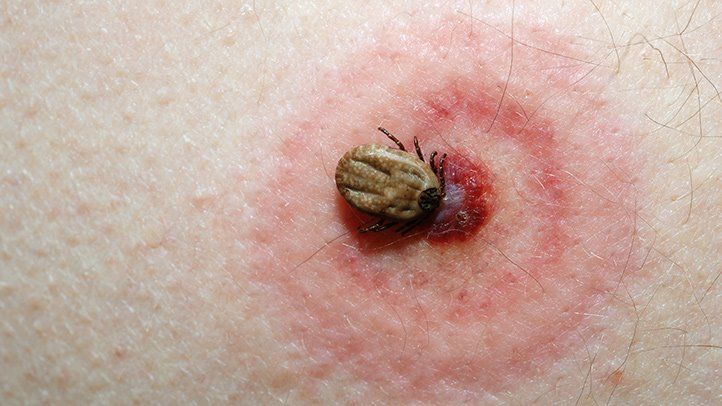Hevitra ato Anatiny
It is sometimes difficult to diagnose Lyme disease (infection caused by the Borrelia bacteria) or other diseases transmitted by ticks (rickettsiosis, babesiosis, etc.). This ignorance, of patients as well as of doctors, sometimes leads to “diagnostic wanderings”, with patients who find themselves without care sometimes for several years.
To respond to citizens’ concerns, the Haute Autorité de Santé published its recommendations this morning. The HAS insisted on the fact that this was only a step work and that other recommendations would follow, as knowledge on these diseases advanced.
In 99% of cases, ticks are not carriers of disease
First information: prevention is effective. It may be useful to put covering clothing, using special clothing repellents, but without falling into psychosis (no need to go pick up blueberries disguised as frogmen).
Above all, it is important to well inspect your body (or that of your child) after a walk in nature, because tick nymphs (which most often transmit diseases) are very small: they are between 1 to 3 mm). Ticks only transmit these diseases if they are carriers and infected. Fortunately, in 99% of cases, ticks are not carriers.
On the remaining 1%, the tick only has time to transmit diseases and bacteria if it remains attached for more than 7 hours. This is why it is necessary to act quickly to release ticks, taking care to detach the head well, using a tick remover.
If the redness spreads, go to the doctor
Once the tick has unhooked, monitoring is essential: if a redness that gradually spreads appears, up to 5 cm in diameter, the child should be taken to the doctor.
In most cases, the child’s immune system will rid itself of the bacteria. In prevention, the doctor will still give antibiotic therapy between 20 and 28 days depending on the clinical signs observed in the infected person.
The HAS recalled that for the disseminated forms (5% of cases) of Lyme diseases, (which manifest themselves several weeks or even several months after an injection), additional examinations (serologies and specialist doctor’s advice) are necessary to help the diagnostic.










